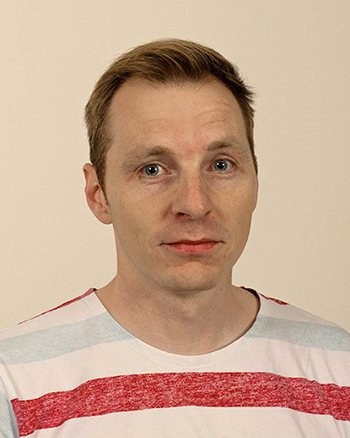Teemu Palosaari, a post-doctoral researcher from the Tampere Peace Research Institute (TAPRI), will launch the new Northern Political Economy blog series as the first visiting author with his text concerning the "Arctic Paradox" and the issue of climate change ethics.
 I had a strange feeling while following the plenary sessions of the 2014 Arctic Circle Assembly in Reykjavík. A growing irritation. Every speaker, no matter whether representing business, governments, NGOs, or indigenous people, started by noting the worrying impacts of climate change in the Arctic. In the same breath, however, the focus was moved on the economic potential of Arctic oil and gas resources. Only rarely was the contradiction between Arctic oil and gas development and the 2 degree global warming target mentioned.
I had a strange feeling while following the plenary sessions of the 2014 Arctic Circle Assembly in Reykjavík. A growing irritation. Every speaker, no matter whether representing business, governments, NGOs, or indigenous people, started by noting the worrying impacts of climate change in the Arctic. In the same breath, however, the focus was moved on the economic potential of Arctic oil and gas resources. Only rarely was the contradiction between Arctic oil and gas development and the 2 degree global warming target mentioned.
I started to doodle on my notepaper. I drew a circle representing the 13/30-account, meaning that the Arctic accounts for about 13 % of the world’s undiscovered, technically recoverable oil and 30% of gas. Then another circle to symbolise the 2°C target. To me, they appeared mutually exclusive. Trying to make the circles meet is like pushing two north poles of magnets together – they repel each other. Doesn’t exploitation of the Arctic 13/30 mean pushing away the 2°C target?
Until very recently the dominant view has been that increased Arctic oil and gas development is inevitable, like it or not. Yet, given the ongoing debate on global climate change ethics, it is becoming more and more difficult to simply ignore the fact that Arctic resources have climate impacts too. A key issue in global climate change ethics is displacement, which involves moving the harms of climate change to future generations while enjoying the associated benefits now. We face a serious temptation in the Arctic: to take the profits now and transfer the costs to others.
Consequently, different ethical arguments are emerging in the Arctic debate. For instance, those supporting Arctic oil and gas development underline local economic growth and right of indigenous people to develop and benefit from natural resources, or argue that oil and gas development in the Arctic is more sustainable than elsewhere. Another typical way is to highlight the global responsibility and argue that since climate change has not been caused by the Arctic, it requires global, not Arctic, solutions.
In 2015 I was back in Reykjavík, in the Harpa concert hall again, another Arctic Circle Assembly. This time my hunch, after sitting in numerous plenary sessions, workshops and seminars on Arctic, was that the debate on global climate ethics has indeed began to influence the way Arctic oil and gas are currently discussed. Sometimes I have even witnessed the so-called “Arctic Paradox” being mentioned by Arctic politicians and business representatives: we get more oil and gas by burning it. This is because fossil fuel use contributes to climate warming, which in turn makes the Arctic sea-ice melt so that new oil and gas resources become available. Using those resources then further accelerates climate warming.
To me in the heart of the Arctic Paradox is an ethical question that concerns Arctic oil and gas. It has been calculated that in order to limit the average global warming to 2°C, globally a third of oil reserves, half of gas reserves (and over 80% of current coal reserves) should remain unused from 2010 to 2050. The unavoidable question is: Is it acceptable to exploit new oil and gas in the Arctic at a time when humankind needs to reduce its carbon emissions?
Teemu Palosaari
Post-doc Researcher
Tampere Peace Research Institute TAPRI
University of Tampere, Finland
Further reading:
On global climate change ethics:
- Ethics & International Affairs 28(3), 2014.
- Peace Review 25(4), 2013.
On Arctic Paradox:
- Palosaari, Teemu (2012): The Amazing Race: on resources, conflict and cooperation in the Arctic. Nordia Geographical Publications Yearbook 40(4).
- Palosaari, Teemu & Nina Tynkkynen (2015): ”Arctic securitization and climate change.” In Honneland & Jensen (eds.) Handbook of the Politics of the Arctic. Edward Elgar.